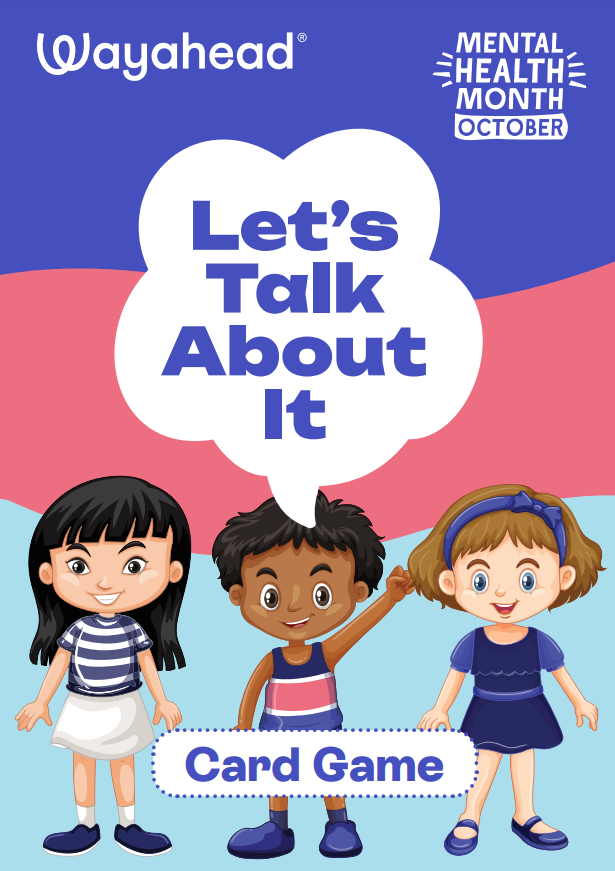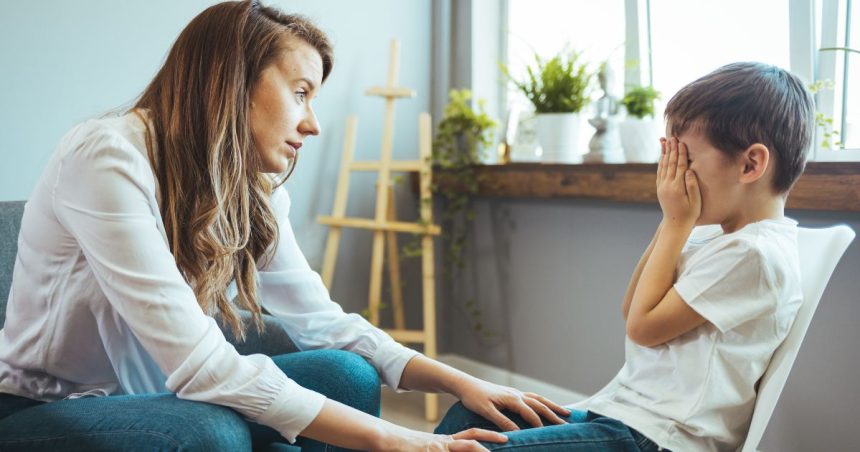In the same way a person’s physical health can have its ups and downs, during October’s Mental Health Month, New South Wales-based charity WayAhead wants to remind people that mental health can have the same variations.
If we have good mental wellbeing, it can be easier to cope when things get tough. But if our mental wellbeing is low, it can be difficult to cope with both everyday difficulties and bigger challenges, making it harder to function to our full potential.
To share understanding and education about how to look after mental health, the Let’s Talk About It card game resource from WayAhead enables students to place themselves in everyday scenarios where they might feel a range of emotions, such as feeling happy, sad, or frustrated, and helps them choose a coping strategy in response to those different emotions. The game encourages students to talk with each other about the scenarios and the coping strategy options.
WayAhead helps educate people on wellbeing and mental health by linking individuals to resources and services and also runs support groups in NSW.
This latest free resource for schools is just one handy tool that aims to support ways to explicitly teach children coping strategies that can assist with positive mental health.

Breaking down the barriers
CEO of WayAhead Sharon Grocott is a trained social worker and mental health leader with lived experience that informs her understanding of why looking after mental health is so important.
Grocott’s daughter lives with schizophrenia and, through this experience, as well as her own struggles with anxiety, she has a broad understanding from a parent, student, and educator perspective.
“I came to WayAhead to help others have a voice and also help influence change and reforms, particularly around people living with more chronic mental health conditions,” she told EducationDaily.
Grocott says the current cost-of-living pressures that are impacting families across the country mean that some people are reluctant to seek mental health support because of the cost involved.
“A lot of families can’t afford to get a referral to see GP and get a referral to see a psychologist or a counsellor, as an example.”
The reality that cost can be a big barrier to seeking mental health treatment and support makes the ability to access free resources for teachers and families even more important, Grocott says.
“We talk to a lot of parents about child anxiety and we do hear a lot of parents talking about school refusal and around that social anxiety as well,” Grocott told EducationDaily.
“And to be honest, it’s not just great for kids – it’s great for adults.”
She says the resources are helpful because they help children manage emotional regulation.
“But it’s not just about teaching emotional responses, it’s about empowering children to achieve what works for them – so what different tool and what different scenario matches it.”
As a tool that teachers can use as a classroom resource, Grocott says part of what she likes about the Let’s Talk About It card game is that it is a game.
“Kids really like fun and I think being able to use a game in the classroom to guide discussion and have really practical scenarios around emotion – it makes it easy to use in the classroom,” she told EducationDaily.
It takes a village…
The curriculum-aligned resource means teachers can map it against the NSW Curriculum framework.
“Despite it being a partnership and collaboration with the New South Wales Education Department, which has been a fantastic partnership for us, it still can apply to the Australian Curriculum, ” says Grocott.
“So, I’d encourage other teachers to download it.”
Making sure young people feel supported is critical when it comes to offering support for mental health issues, Grocott says, adding that the saying about it taking a village to raise a child is “so relevant”.
“Schools are important hubs of communities where we can connect with parents, grandparents, teachers and the wider community.
“It’s really important that we normalise these conversations.”








